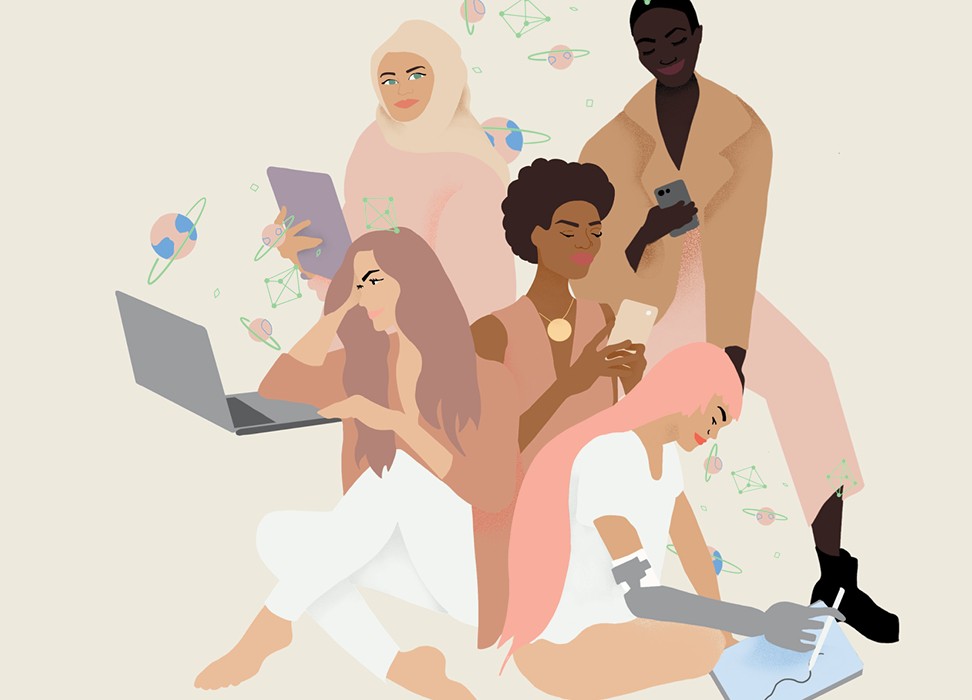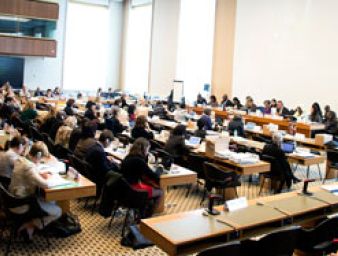HC: The digital space must undergo a feminist revolution

International Women’s Day, on 8 March 2023, will recognize the critical contributions of women human rights defenders and feminist movements, who use the transformative power of digital technology to connect, mobilize, and drive social change, while fighting against the persistent pushback of women’s rights.
This transformative power has manifested through activist Greta Thunberg of Sweden who began a school strike on Fridays to protest inaction by the Government of Sweden on climate change. Her stance inspired thousands of other students through social media to follow her lead in other countries. The brave power was also seen through the women and girls who campaigned online to repeal near-total bans on abortion in Colombia and Ireland.
In Iran, young women have been using social media to speak up and challenge the regime’s patriarchal norms and express their demands for equality. And it was women in Sudan who led the protests against religious fundamentalism and now autocratic rule, using online tools to mobilize the population.
“Women’s rights are about the core of what it is to be human: respect for an individual’s freedom to make choices,” said UN Human Rights Chief Volker Türk.
While the digital world offers immense opportunities, it isn’t immune to the persistent backlash against women’s rights and gender equality including gender-based violence and digital exclusion. It reflects and amplifies the offline world where women and girls, including those who are lesbian, bisexual, transgender or intersex, are exposed to a myriad of misogynistic attacks used by groups to misinform societies and undermine the advancement of women’s rights and gender equality.
“International Women’s Day reminds us of the patriarchal power dynamics, old and new, that hold our world back from fulfilling the rights of all women and girls — and realizing the full potential of humanity,” said Türk. “We need to bring an end to patriarchy, and to toxic masculinity, in the 21st century. Women’s equality is essential to justice – above all, justice for the millions of women concerned.”
There have been great advances in women’s rights over the past 75 years since the Universal Declaration of Human Rights. Women influenced the text of the Declaration that has given women critical social changes and continue to lead social change that has enabled more people to enjoy their human rights.
Since the adoption of the Declaration, women and girls have experienced meaningful change and progress in their lives. There are more women in leadership positions. In every continent, women have been elected to lead Governments. In many professions which were once closed to them, women now hold decision-making positions. More girls are attending and remaining in school.
Issues that were once considered “private” — such as domestic violence — or that were “normalized,” such as sexual harassment in the workplace — or seen as “trivial,” such as maternity and paternity leave — have seen their public priority dramatically rise.
“And yet we are seeing efforts to push back women’s rights in every region — underpinned by authoritarian or patriarchal narratives that normalize misogyny and affirm that women and girls must be essentially restricted to caregiving, reproduction and the family, regardless of their own desires,” said Türk.
According to Türk, digital technologies have become vehicles for spiteful and hateful abuse of women and girls online.
“This is especially the case for women who are in the public eye, public office, and political functions and for women human rights defenders,” he said.
“
The digital space has yet to undergo a much-needed feminist revolution – and it must.
“
Volker Türk, UN High Commissioner for Human Rights
According to UN Women, 85 percent of women have witnessed digital violence against other women, while 38 percent of women have personally experienced online violence.
Women are 27 times more likely to be abused online than men.
Violence and misogyny that exist offline quickly moves into the digital space, with women and girls paying a disproportionate price for speaking out. The pushback against the rights of women and girls is particularly around sexual and reproductive health and rights where anti-rights groups are using online petitions and campaigns opposing access to sexual and reproductive health services.
“We are witnessing a many-pronged effort to control women’s sexuality and choices about their own bodies by restricting and even criminalizing sexual and reproductive rights -- particularly access to safe and legal termination of pregnancy,” Türk said.
“Let me make something else clear. Women’s equality is not going to destroy the institution of marriage, the family, or religion, as some claim,” he said. “It enriches every aspect of culture and society.”



